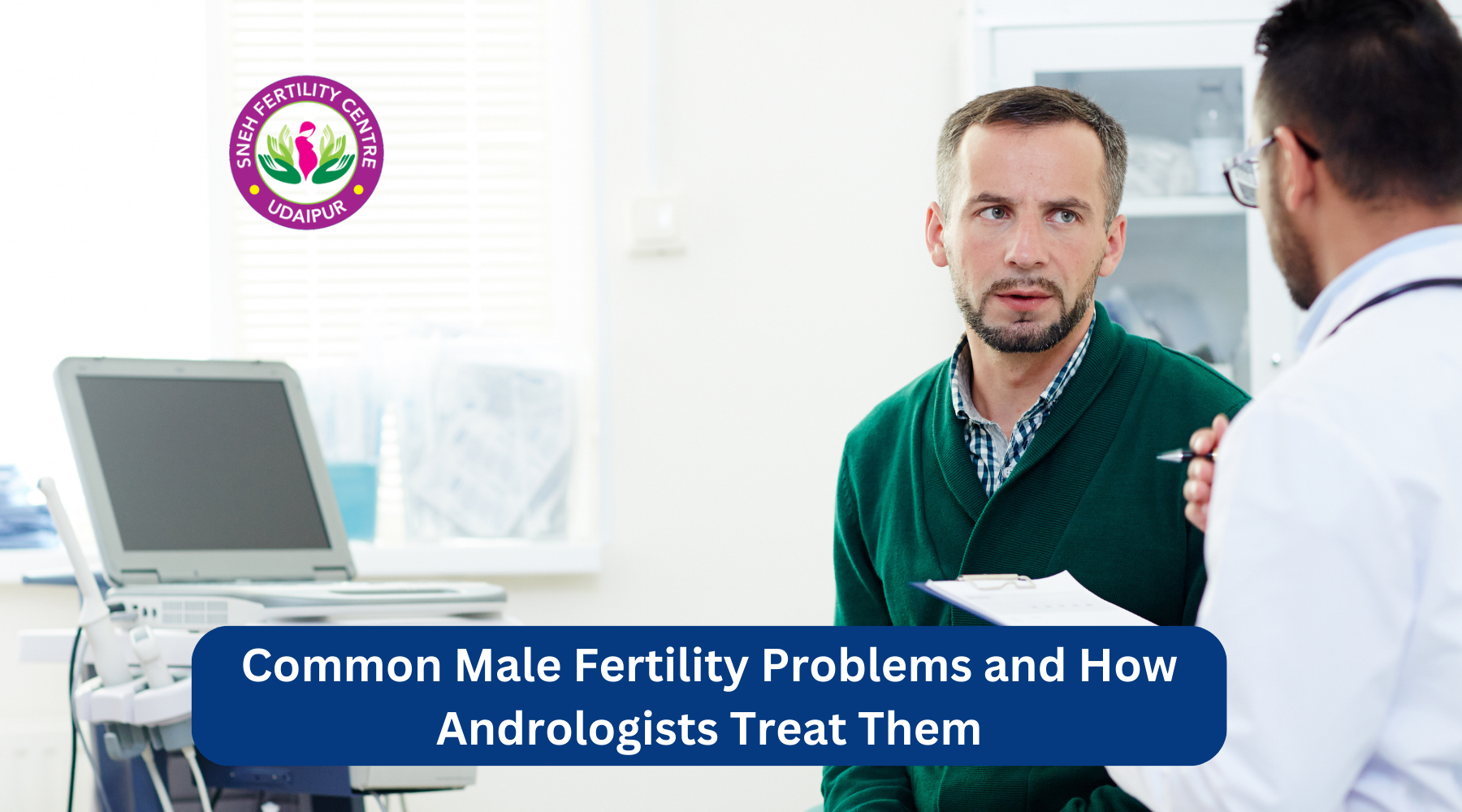Infertility is often thought of as a women’s health issue, but in reality, male factors contribute to about 40–50% of infertility cases in couples. Male fertility problems are more common than most people realize, and they can be a major hurdle for couples trying to conceive.
The good news? Many male infertility issues are treatable with proper diagnosis, medical care, and lifestyle changes. That’s where an andrologist, a specialist in male reproductive health, plays a key role.
In this blog, we’ll explain what male infertility is, the most common causes, and how andrologists help men overcome fertility challenges.
What is Male Infertility?
Male infertility means a man is unable to achieve pregnancy with a healthy partner despite trying for a year or more. This usually happens because of:
- Problems with sperm production: low count or poor quality
- Problems with sperm movement: slow or immobile sperm
- Problems with sperm delivery: erection or ejaculation issues
Sometimes, infertility is temporary and can be improved with treatment. In other cases, advanced fertility care may be needed.
Common Male Fertility Problems
Low Sperm Count (Oligospermia)
One of the most common issues is having fewer sperm than normal in the semen. This lowers the chances of fertilizing an egg.
Causes include:
- Hormonal imbalances
- Smoking or excessive alcohol use
- Being overweight
- Testicular infections or injuries
- Long-term illnesses
Abnormal Sperm Shape (Poor Morphology)
Even if sperm count is normal, sperm must be properly shaped to reach and fertilize the egg. Misshapen sperm may not be able to swim effectively or penetrate the egg.
Causes include:
- High fever or frequent heat exposure (like saunas, hot tubs, or laptops on the lap)
- Poor nutrition
- Varicocele (enlarged veins in the scrotum)
- Genetic conditions
Poor Sperm Movement (Low Motility)
Sperm must swim actively to reach the egg. Low motility reduces fertility chances even if sperm count is normal.
Causes include:
- Lifestyle factors (smoking, alcohol, stress)
- Hormonal problems
- Past infections affecting the reproductive tract
Hormonal Imbalances
Hormones like testosterone, FSH, and LH control sperm production. Low levels or imbalances may cause infertility.
Possible reasons:
- Stress or obesity
- Thyroid problems
- Pituitary gland disorders
- Certain medications
Erectile Dysfunction & Ejaculation Problems
Sometimes infertility happens because sperm cannot reach the female reproductive system. Conditions like erectile dysfunction (ED) or premature ejaculation can make conception difficult.
Blockages in the Reproductive Tract
Blockages in the vas deferens or epididymis may prevent sperm from being ejaculated. These can be caused by infections, surgeries, or congenital issues.
How Andrologists Diagnose Male Fertility Issues
Andrologists use a series of tests to identify the root cause of infertility:
- Semen Analysis: Measures sperm count, shape, and movement.
- Blood Tests: Check hormone levels and possible underlying health conditions.
- Ultrasound or Scans: Detects varicocele, blockages, or testicular problems.
- Genetic Tests: For men with very low or no sperm production.
A correct diagnosis is the first step toward effective treatment.
How Andrologists Treat Male Fertility Problems
Treatment depends on the cause. Andrologists often combine medical care with lifestyle improvements for best results.
Medical Treatments
- Hormone Therapy: Restores balance if low testosterone or other hormones are the issue.
- Antibiotics: For infections that affect sperm health.
- Varicocele Repair Surgery: Improves sperm production and quality.
- Medications for Erectile Dysfunction: Helps men with performance or ejaculation issues (while not directly boosting fertility, it allows sperm to reach the egg).
- Assisted Reproductive Techniques (ART): If natural conception is difficult, options like IUI (Intrauterine Insemination) or IVF (In Vitro Fertilization) may be recommended.
Lifestyle Changes for Better Fertility
Doctors often stress that small changes can make a big difference in sperm health. Recommended habits include:
- Eating a diet rich in fruits, vegetables, proteins, and antioxidants
- Maintaining a healthy weight
- Exercising regularly (but avoiding extreme overtraining)
- Quitting smoking and limiting alcohol intake
- Reducing stress through yoga, meditation, or relaxation
- Avoiding excessive heat (tight clothing, saunas, or keeping laptops on laps for long)
When to See an Andrologist?
You should consult a specialist if:
- You’ve been trying for pregnancy for 12 months without success (6 months if the female partner is over 35)
- You have a history of testicular infections, injury, or surgery
- You experience erection or ejaculation problems
- You notice swelling, lumps, or pain in the scrotum
- You have lifestyle factors like smoking, heavy drinking, or obesity affecting health
FAQs About Male Infertility
Is male infertility common?
Yes. Studies suggest that male factors are involved in around 40–50% of infertility cases among couples.
Can low sperm count be treated?
Yes. Depending on the cause, treatments may include medicines, surgery, lifestyle changes, or fertility techniques like IUI/IVF.
Do erectile dysfunction medicines cure infertility?
Not directly. But they help men achieve normal sexual function, which makes natural conception possible in some cases.
Can stress cause male infertility?
Stress alone does not cause infertility, but it can worsen hormone balance and sexual performance, making it harder to conceive.
How long does it take to see improvements after treatment?
Sperm production cycles take about 70–90 days, so improvements may be seen within 3 months after lifestyle changes or treatment.
Male Infertility Treatment in Udaipur
If you’re in Udaipur or nearby areas, you don’t need to delay getting help. At Sneh Fertility Centre, expert andrologists provide:
- Advanced diagnosis with semen analysis and hormone testing
- Medical and surgical treatments for male infertility
- Lifestyle guidance for improving sperm health
- Supportive fertility treatments like IUI and IVF if needed
With the right care, many men successfully improve fertility and achieve fatherhood. Male infertility is not rare, and in most cases, it is treatable. An andrologist can identify the real cause and recommend the best treatment plan.
If you and your partner are facing difficulties conceiving, don’t wait—early help makes a big difference.
Book your consultation with Sneh Fertility Centre, Udaipur, and take the first step toward parenthood today.






